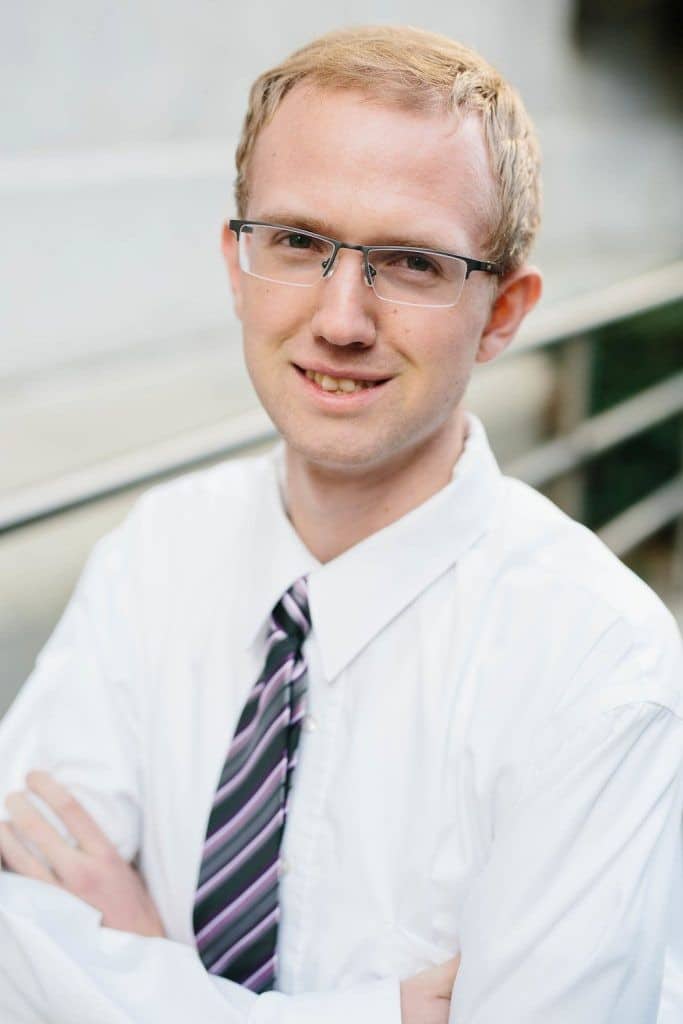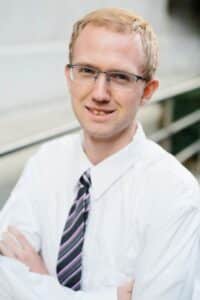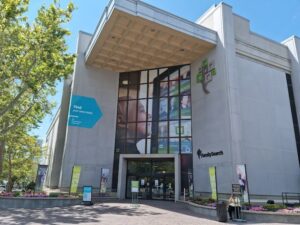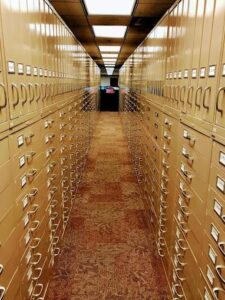A Professional Genealogist’s Journey
 3
3Feb

My journey to becoming a professional genealogist was roundabout and unexpected. As a child and teen, I was interested in history more than most of my peers. I really wanted to be an archivist, being very interested in phonograph records and related artifacts. I was told by pretty much everybody around me that there were few realistic careers to be had for either historians or archivists. It was suggested that I pick something else to do as my full-time vocation when I grew up. Thus, I followed a pathway in a science-related field, like biotechnology, for which my high school offered a concurrent enrollment college-level program. In this class I learned about the technical aspects of genetic applications and the basics of DNA testing and sequencing. I made and ran primitive CODIS-style DNA marker gels: the kind law enforcement has used since the 1990s to profile suspects by matching them to biological evidence left at a crime scene. Even though my grandfather had taken an Ancestry DNA test, I was convinced at this point that genealogy was something you only did when you were older.
However, it seems like somebody had different plans for me. I had plans to go to university, get a biotechnology degree, spend my career in a laboratory processing lab samples, and run experiments involving gene therapies and related matters.
It would be difficult to entirely explain the key events leading to my ultimate career choice without acknowledging the role that my religious faith played in my life after graduating high school. I was happy to serve a mission for the Church of Jesus Christ of Latter-day Saints. It was my good fortune to be selected out of hundreds of applicants to serve for two years at FamilySearch Headquarters and Family History Library in Salt Lake City, Utah. This proved to be an invaluable experience and fortunate opportunity.

I learned that genealogy, besides being fascinating, could also be a profession to support myself and a future family. I also learned that people will hire professional genealogists. I enjoyed teaching patrons the basics and began to see this as a viable career option.
The library professionals I worked with told me about becoming an Accredited Genealogist through ICAPGEN, the International Commission for the Accreditation of Professional Genealogists. Prospective candidates needed to spend a thousand hours in one specific region that ICAPGEN tested on. There were a series of tests and projects that, if I passed, would award me an Accredited Genealogist credential and the AG® postnominal. Upon learning all this, I feverishly spent as much time as I could researching in Swedish records. Many of my ancestors originated in this country, and I had spent several months learning how to work those lines. Through much self-learning efforts and mentoring, I learned about the Swedish language, its culture, its geography, its records and history, and how rich Sweden was in all of those things.

Eventually my service mission ended and I returned home, but my love of genealogy and Swedish research went home with me. My resolve to do whatever it took to become a professional genealogist only grew stronger with time.
Breaking into the field of professional genealogy is very competitive. Being a newcomer, I tried to think of ways to be noticed by prospective employers or clients as a qualified researcher. I volunteered to research various individual trees to expand my skill sets. I placed an inquiry on a researcher’s genealogy Facebook page. My post wasn't what the hosting researcher wanted to have published on his page since it was mostly intended to bring him business. Nevertheless, he took me under his wings and showed me the ropes of being a professional genealogist. He came from a time when it was very difficult to make a living doing other people's genealogy, but he had been successful.
I didn't know at the time, but this particular genealogist had worked with the company I'm now working for full-time. I have been with Price Genealogy since 2017 and with Lineages, a sister company, since 2020. My mentor gave me a project, which I did promptly. He said it was good and he offered to be a reference for my application for the Young Professionals scholarship offered by the Association of Professional Genealogists (APG), for which I was runner-up later that year. I had the chance to write for their Winter quarterly for the 2017/18 year.
I reached out to the professionals who had been so kind to me at the Family History Library during my years of service there. They mentioned a company called Price Genealogy that gave them their start years ago. I inquired about potentially doing research for them. They had some interest in taking on a new Swedish researcher as an independent contractor, but what they really needed was a new clerical director. I jumped at the opportunity to submit my resume. I was given a trial day of work and somehow pulled off the miracle of being hired full-time by Price genealogy.
I am grateful to the generous mentoring by my co-workers to the finer points of client research projects. I was given more substantial projects and proved my worth over time. After a couple years I had accomplished the necessary 1,000 hours, so I submitted the required four-generation research project that ICAPGEN. Because of delays due to the pandemic, it took longer than expected to earn my AG® as a Sweden researcher. It is a rigorous process. Accredited Genealogists and Certified Genealogists have demonstrated to their peers that they have experience and are capable of high-level research in their area of expertise. Still, there are many other well-qualified professional genealogists who have demonstrated their skills and have much relevant experience. I’ve seen that there is more than one path to becoming an excellent genealogical professional. Motivation to continually learn new things is ultimately what it takes. I am grateful to my employer for the opportunity to serve our Price Genealogy and Lineages clients.

Besides my Clerical Director and digital marketing-related duties as a staff member, I also greatly enjoy Swedish and Danish projects, along with occasional United States projects. If you have the dream, and a determination to try to learn all that you can, I would encourage you to consider becoming a professional genealogist.
By Andre
